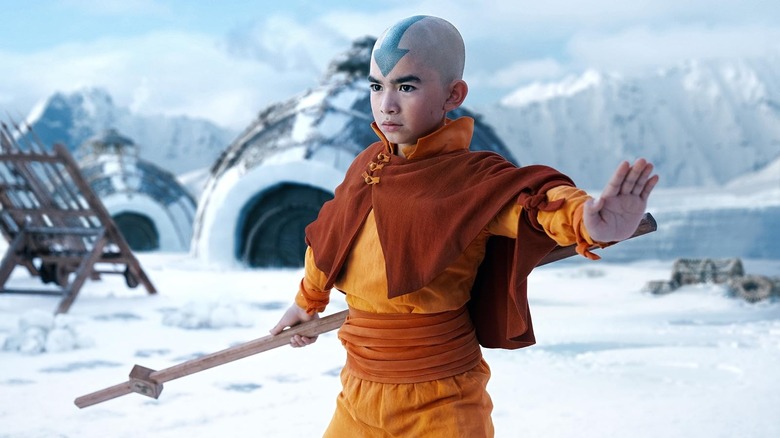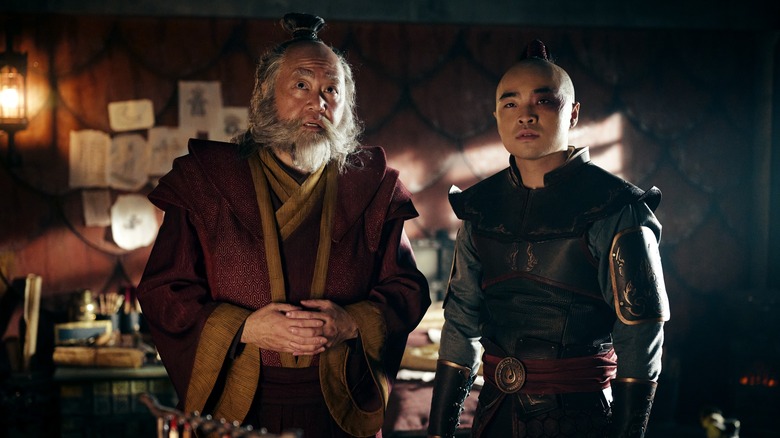One Major Element Of Netflix's Avatar: The Last Airbender Will Distract All The Hardcore Fans
Live-action remakes of beloved animated titles are nothing new and with each new remake comes the endless debate of how closely fans want the new show to follow the original, versus how much of a new thing it should be. The best remakes end up being more like rebuilds, taking from the original, adding to it, and overall making something that feels recognizable, but fresh. Shows like "Watchmen," "Scott Pilgrim Takes Off" and the "Rebuild of Evangelion" movies succeed at this.
Even the "One Piece" live-action show managed to break the curse and deliver a great live-action anime remake. That show found the right balance of old and new by essentially throwing away the individual episode stories, instead reworking important character arcs into new episodes that followed the overall structure of the original series but not their scripts. It nodded at the source material while doing something new.
This brings us to the Netflix live-action remake of "Avatar: The Last Airbender." This show wants to have its cake and eat it too. It heavily changes the original character arcs, combines episodes, and reworks the story in big and small ways — like adding elements from the comics and future seasons. At the same time, it still tries to be as close to a 1:1 adaptation as possible, cramming as much from the original as it can even if it doesn't fit the more adult tone.
Where this approach works the least is the music, which serves as a constant reminder that this is not the cartoon that inspired a generation.
Music is essential to Avatar
Netflix's "Avatar: The Last Airbender" actively reuses entire tracks from the animated show's original score by Jeremy Zuckerman. There are the opening and closing themes, which are used in every single episode, but also the theme for the Fire Nation, and even an instrumental version of "Leaves From the Vine," the beloved tear-jerking song Iroh sings on his dead son's birthday in an episode.
The problem with this is that these recognizable sounds evoke the feeling that you're watching not a continuation or companion to the original, but the same show — which it isn't. Watching the upbeat, fun music from the 20-year-old cartoon followed by a scene of airbenders being brutally burnt to death by firebenders creates a tonal dissonance that is hard to ignore. It becomes nearly impossible not to constantly compare the two shows because the live-action remake constantly reminds you of the original.
And there was a way to avoid this, while still having nods to the original music. Take the "One Piece" live-action, which has an entirely original score that separates the show from the anime and manga. The Netflix show nevertheless uses an instrumental version of "We Are," the iconic first theme song of the 25-year-old anime during one key scene ... and that's it. It is definitely a piece of fan service, as the scene uses that emotional connection and that decades-old context for a moment of great triumph, then it's over.
All this being said, there is one blatant reuse of the original music that works precisely because it takes you out of the show — the "Secret Tunnel" song. It is a dumb, silly song that has taken a life of its own since "Avatar" ended, and a love letter to the fans that continues to delight people to this day.

